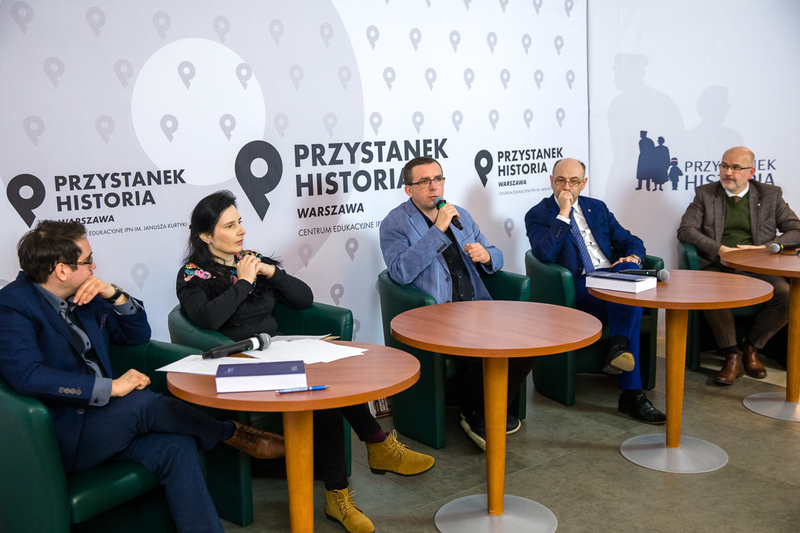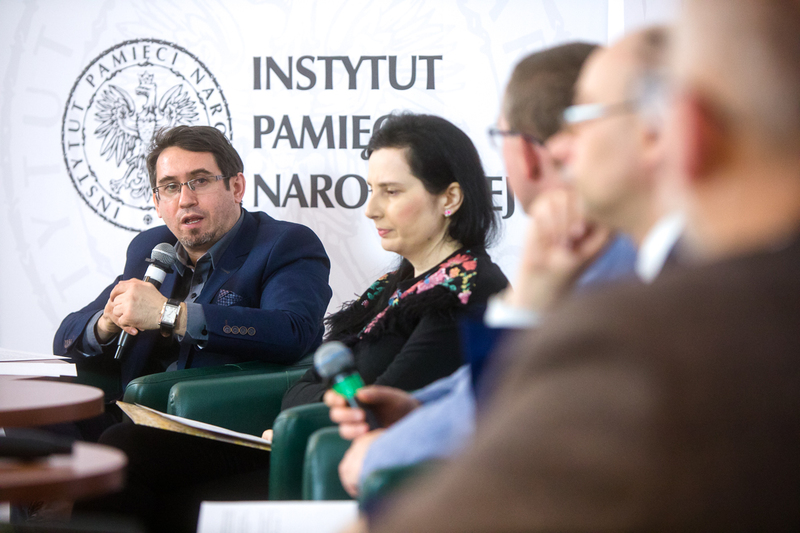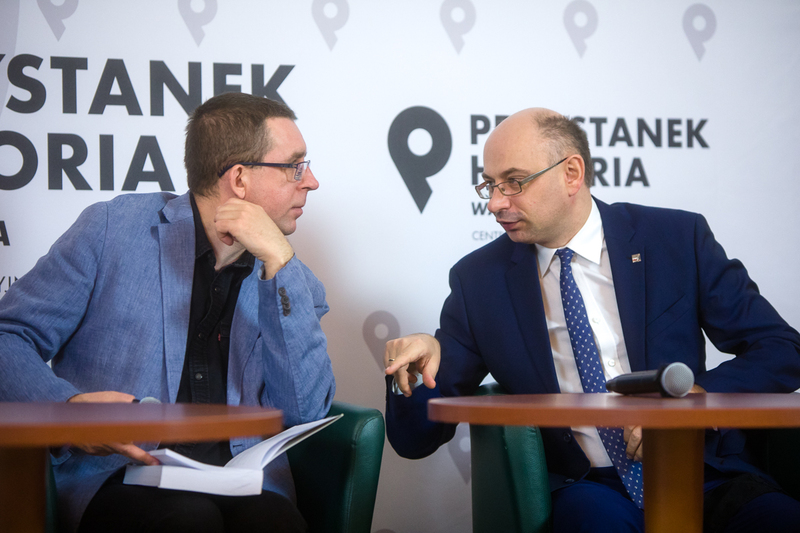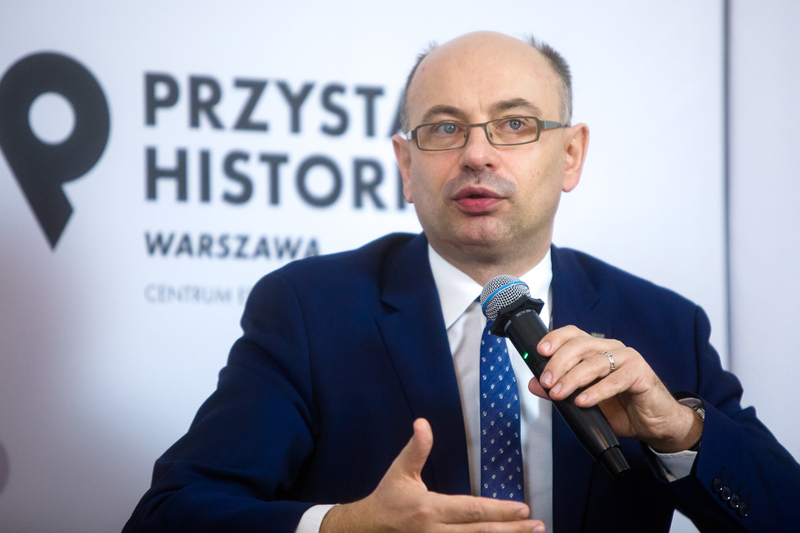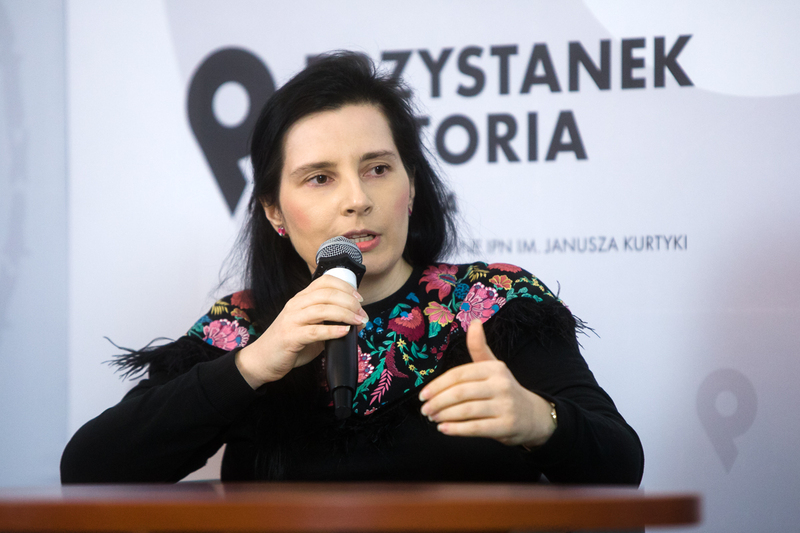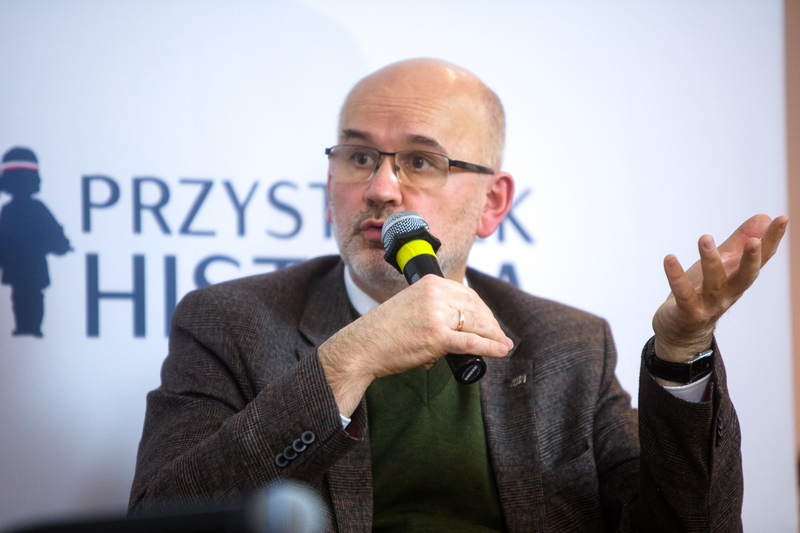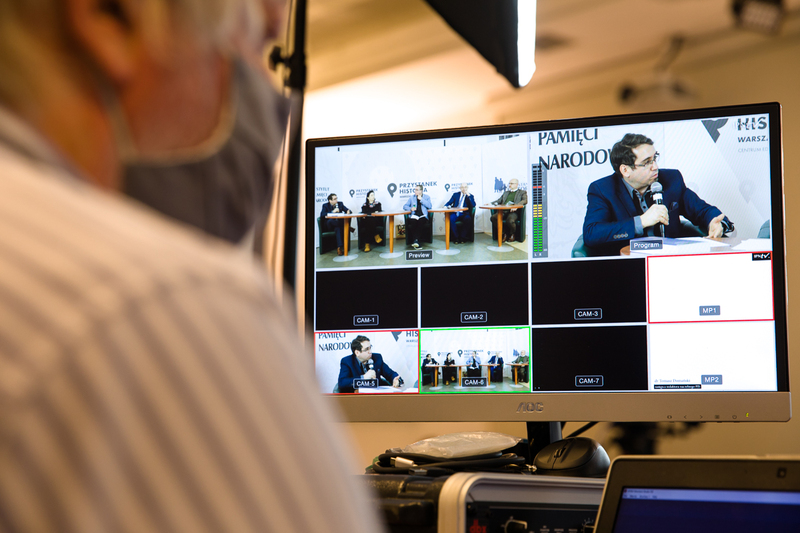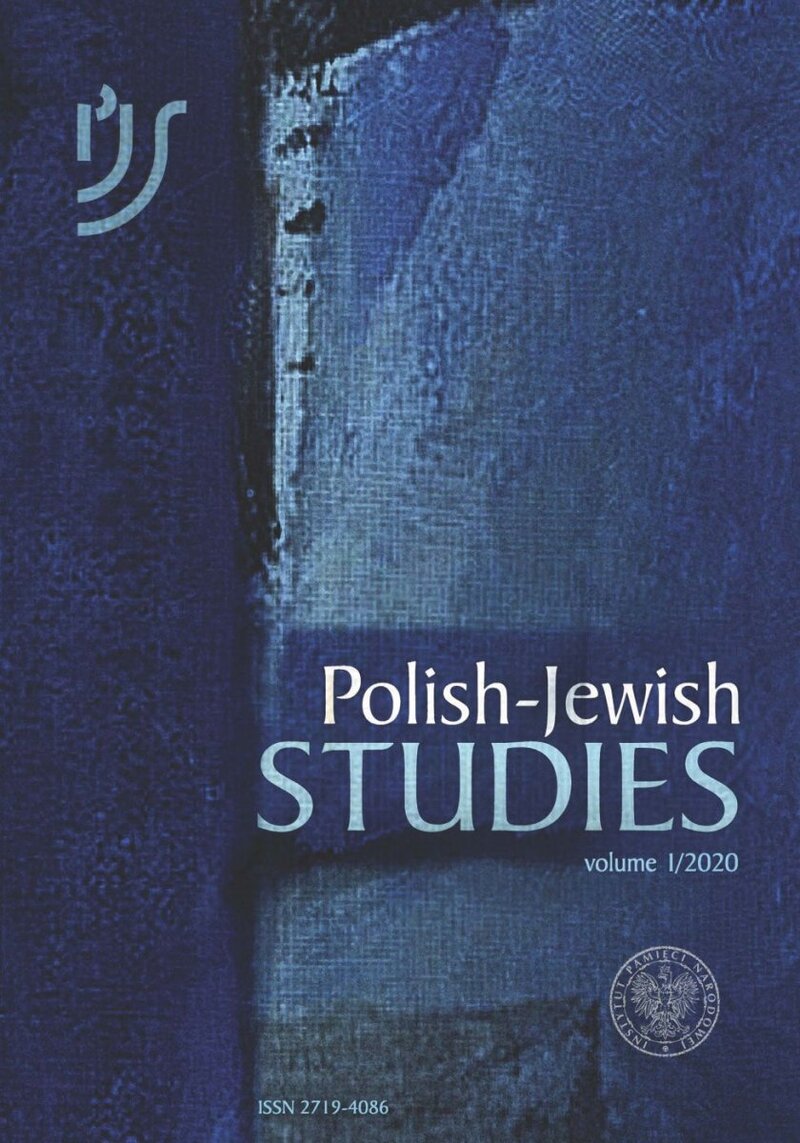The debate featured members of the editorial board (the IPN’s Deputy President Mateusz Szpytma, PhD, Editor-in-Chief, Professor Grzegorz Berendt, Deputy Editor-in-Chief, Tomasz Domański, PhD, the editorial assisant Alicja Gontarek, PhD), and was moderated by Rafał Dudkiewicz.
The first issue of the IPN’s Polish-English-language academic journal is devoted to Polish-Jewish relations and the history of the Jewish community in the Polish lands in the 20th century. Among others, it discusses legalization of documents for Jews hiding during the German occupation, explores the story of the Polish consulate in Havana, which helped Polish citizens of Jewish origin to escape from occupied Europe, and offers insights into post-war trials of the Blue Policemen accused of murdering Jews.
"In 1942, two ships carrying Jewish refugees from Europe appeared near the Cuban (and also Jamaican) shores: in February 1942, the 'Serpa Pinto' arrived from Lisbon, and in late May 1942, the 'St. Thomé', also from Portugal, docked in Cuba. Both vessels carried passengers of Jewish origin, who came from Poland and other countries. The story of the 'St. Thomé' strangely resembles the fate of the ‘St. Louis’..."
reads an excerpt from almost sensational story told by Alicja Gontarek in her “Polish Diplomatic and Consular Representation in Havana, and the Case of Jewish Refugees in Cuba during the World War II”, an essay published in the first issue of “Polish-Jewish Studies”.
Explaining the idea behind the “Polish-Jewish Studies”, the IPN’s Deputy President Mateusz Szpytma said,
We decided that the time has come, apart from releasing books in English, to build an academic environment around a journal; it is not the first journal published by the IPN, but the first one that is fully bilingual, in Polish and English, and addresses the issues which are both very important and reverberate in the world; through this forum for researchers, forum for debates, we want to promote the knowledge of the Second World War and Polish-Jewish relations.
Tomasz Domański, the new journal’s Deputy Editor-in-Chief, spoke about the contents of the first issue,
Indeed, it has been dominated by the topic of the Second World War and Polish-Jewish relations in that period; we had other texts, but preparing the first issue we concentrated on these problems, considering them important enough to open the series. We want to address the relations between Poles and Jews throughout the 20th century, but the significance of the war period convinced us to focus on these matters.
The journal’s Editor-in-Chief, Professor Grzegorz Berendt, elaborated on the historical discourse in communist Poland, and the way it affected the research of the Holocaust-related issues,
The [Soviet] practice of blending the Jewish losses into the mass of all victims of the German occupation also affected Poland, especially after 1968 – because while prior to that year it had been admitted that among the six milion of Polish citizens murdered during the war half were Polish Jews, from 1968 the victims were called "Polish citizens” at best, and in the 1970s, classified simply as Poles . . . the Polish People’s Republic engaged into wrongful "polonization” of all victims in a quasi-ethnic sense as an element of historical policy of that state in the 1970s and the 1980s. Early 1980s was the period of the most deficient research initiatives, and it ended only with the fall of the Polish People’s Republic . . . If nothing else, preventing contact between Polish historians and the Holocaust researchers in the West for at least a dozen years . . . affected the quality of the research and its intensity.
Given the damage resulting from either the negligence or policy of the communist state, the need for debate, exchange of experiences and discourse platforms - such as the "Polish-Jewish Studies" - becomes evident.
More IPN’s initiatives on the National Day of Remembrance of Poles Rescuing Jews under German Occupation were presented by President Jarosław Szarek and Deputy President Mateusz Szpytma at the 23 March press conference.
